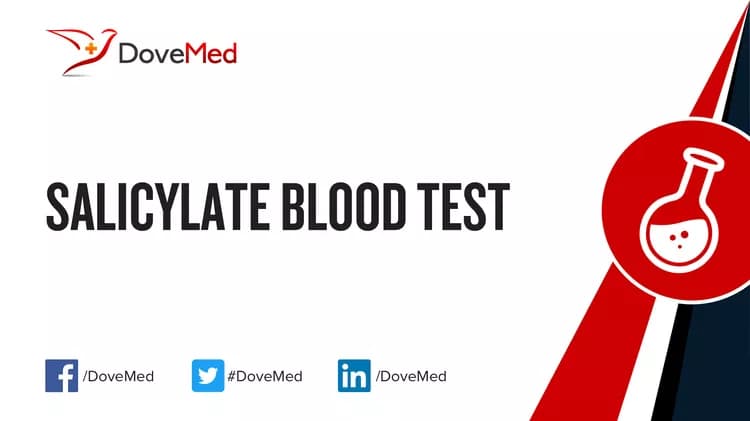What are other Names for this Test? (Equivalent Terms)
- Acetylsalicylic Acid Levels Blood Test
- Aspirin Levels Blood Test
- Salicylate Levels Blood Test
What is Salicylate Blood Test? (Background Information)
- Salicylate is a breakdown product of aspirin. Like aspirin, salicylate also exhibits anti-inflammatory effects. Aspirin works by inhibiting an enzyme required for the production of inflammation-stimulating compounds
- However, inflammation is important for bringing nutrient-rich blood to the site of injury or infection. It also helps remove wastes, attract white blood cells, and communicate pain. An unnecessary suppression of this defense mechanism can have undesirable effects
- The Salicylate Blood Test determines the levels of salicylate in blood. It is used to indirectly measure aspirin levels to prevent toxicity
What are the Clinical Indications for performing the Salicylate Blood Test?
Following are the clinical indications for performing the Salicylate Blood Test:
- Dehydration
- Altered mental status
- Nausea
- Vomiting
- Diarrhea
- Fatigue
How is the Specimen Collected for Salicylate Blood Test?
Following is the specimen collection process for Salicylate Blood Test:
Sample required: Blood
Process of obtaining blood sample in adults:
- A band is wrapped around the arm, 3-4 inches above the collection site (superficial vein that lies within the elbow pit)
- The site is cleaned with 70% alcohol in an outward spiral, away from the zone of needle insertion
- The needle cap is removed and is held in line with the vein, pulling the skin tight
- With a small and quick thrust, the vein is penetrated using the needle
- The required amount of blood sample is collected by pulling the plunger of the syringe out slowly
- The wrap band is removed, gauze is placed on the collection site, and the needle is removed
- The blood is immediately transferred into the blood container, which has the appropriate preservative/clot activator/anti-coagulant
- The syringe and the needle are disposed into the appropriate “sharp container” for safe and hygienic disposal
Preparation required: No special preparation is needed prior to the test.
What is the Significance of the Salicylate Blood Test Result?
The significance of the Salicylate Blood Test result is explained:
- An elevated test value may indicate salicylate toxicity
- A decreased test value may indicate that more aspirin is needed to achieve a therapeutic dose
The laboratory test results are NOT to be interpreted as results of a "stand-alone" test. The test results have to be interpreted after correlating with suitable clinical findings and additional supplemental tests/information. Your healthcare providers will explain the meaning of your tests results, based on the overall clinical scenario.
Additional and Relevant Useful Information:
- Certain factors may interfere with the results of the Salicylate Blood Test. These include hydration status and genetic defects in the enzyme responsible for metabolizing aspirin
Certain medications that you may be currently taking may influence the outcome of the test. Hence, it is important to inform your healthcare provider of the complete list of medications (including any herbal supplements) you are currently taking. This will help the healthcare provider interpret your test results more accurately and avoid unnecessary chances of a misdiagnosis.
Related Articles
Test Your Knowledge
Asked by users
Related Centers
Related Specialties
Related Physicians
Related Procedures
Related Resources
Join DoveHubs
and connect with fellow professionals


0 Comments
Please log in to post a comment.